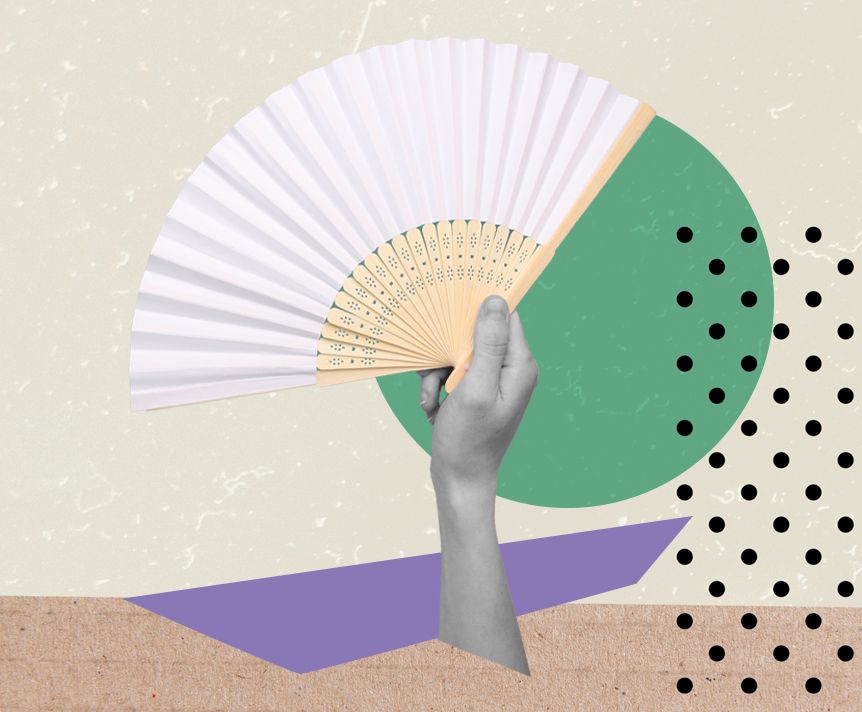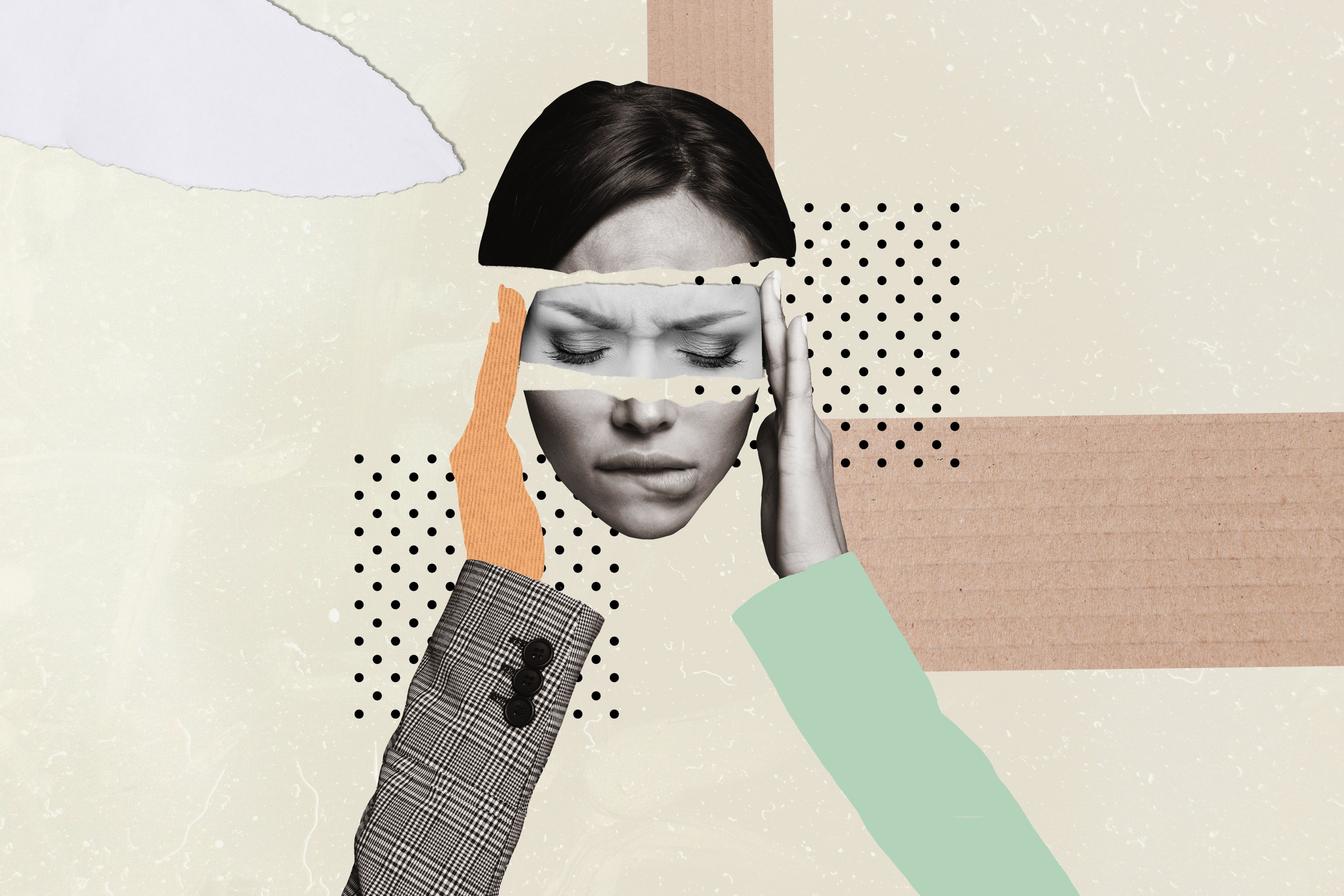It's a sign
FROM A-Z, HERE ARE THE 48 SIGNS OF MENOPAUSE YOU MIGHT NOT YET BE AWARE OF

It's a sign
FROM A-Z, HERE ARE THE 48 SIGNS OF MENOPAUSE YOU MIGHT NOT YET BE AWARE OF

1 / Acne
Your skin might feel like it has gone back in time! Hormonal fluctuations can increase sebum production, which clogs pores and causes pesky blemishes.
2 / Altered skin
Brief zaps under your skin or lightning bolt-like shocks could be neurons misfiring in menopause.
3 / Anxiety
A drop in oestrogen can lower production of serotonin, the 'happy chemical', and trigger that feeling of impending doom.
4 / Bladder weakness
Menopause can contribute to weaker pelvic muscles and a thinner urethra lining – but pelvic floor exercises can make a difference.
5 / Bloating
Feel like you want to loosen your trousers? Your digestive system takes a hit as hormones fluctuate – so the right diet and supplements are important.
6 / Body odour
Your internal thermostat might have been thrown off kilter due to falling oestrogen levels. We recommend some brilliant products to keep you fresh in this issue.
7 / Brain fog
Feel like your own personal Wi-Fi signal keeps dropping? A reduced amount of oestrogen, as well as testosterone, is at play.
8 / Breathing difficulties
Menopause can exacerbate existing conditions like asthma. Hormonal changes can affect lung function and stress can be a factor.
9 / Burning mouth syndrome
Random scalding sensations, like you've bitten a chilli? Up to 40% of women find this can happen as taste buds change.
10 / Changes in breast size
Going up a cup size or shifting shape is common. As oestrogen declines, breasts alter, changing their shape and the support needed.
11 / Changes in sex drive
Your sexual interest might fade or intensify unexpectedly. For some that's a challenge – for others it's liberating.
12 / Changes in skin texture
Oestrogen is crucial for collagen production, so as it slows, that 'bounce-back' feeling might fade.
13 / Changes in taste and smell
Morning coffee suddenly tasting metallic? Shifting hormones alter sensory perception, so that 'off' flavour isn't in your head.
14 / Decreasing fertility
Your body is beginning its natural transition out of the reproductive years. This happens at your body's own pace – it's different for everyone.
15 / Dental issues
Lower oestrogen can weaken immunity and affect oral tissues. Receding gums can lead to decay, but the right advice or products help.
16 / Depression
If you're not enjoying the activities you used to, menopause might be responsible. Talk to your GP, friends and family for ways to manage it.
17 / Dizziness
Feeling lightheaded? Hormonal fluctuations might affect the balance centre in the inner ear. Dizziness can also be linked to blood sugar and your response to insulin.
18 / Dry eyes
A decrease in oestrogen and androgens (male hormones) affects tear production, causing gritty eyes. Luckily, there's a range of ways to ease the discomfort.
19 / Dry mouth
The menopause can be thirsty work. Less saliva production can contribute to hoarseness, soreness or a parched feeling that makes you crave a drink.
20 / Fatigue
Bone-deep exhaustion no amount of caffeine seems to fix? Hormonal havoc means your usual energy reserves could be running on empty.
21 / Feeling cold
The part of the brain that controls temperature (the hypothalamus) gets confused during menopause – so your body can go from shivering to overheating.
22 / Headaches and migraines
As hormones seesaw during perimenopause, headaches can increase in frequency and intensity, especially around your period.
23 / Heart palpitations
Heart doing a drum solo? Hormone shifts can affect the cardiovascular system, and heightened sensitivity can make you more aware of it.
24 / Hot flushes
There's no exact science as to 'why' hot flushes happen, but it's related to your body's internal thermostat. Wearing breathable fabrics can help.
25 / Irregular periods
Your once-predictable cycle might be behaving unreliably. If fluctuating oestrogen levels affect your body clock, period pants can be a lifesaver.
26 / Irritability
You might find your fuse is shorter, with hormones being the culprit. Taking time out can be a way to self-regulate difficult feelings.
27 / Loss of concentration
Oestrogen plays a part in overall brain health and function, and when that lowers, it could be the reason you can't focus on the next page of your book.
28 / Itchy, crawly skin
Skin thins, so it gets irritated more easily. You can calm things down. Read our intimate skin guide for tips.
29 / Joint pain
Altering oestrogen levels can cause inflammation, stiffness and aches. So you have a valid reason for that 'oof' sound as you get up from the sofa.
30 / Lack of motivation
Easy tasks now taking a Herculean effort? It's your brain responding to shifting hormones that influence dopamine and energy regulation.
31 / Loss of bone density
The process can be gradual as hormone levels change, but with the right nutrition and movement it's manageable.
32 / Loss of confidence and self-esteem
At this life stage, you can feel a little lost and low.
Managing your signs can get you back on track.
33 / Mood swings
Feeling like a teen again? Being open with your family, checking in with your feelings and talking to a GP can all help.
34 / Muscle tension
Reduced oestrogen can mean more muscle aches and increased inflammation, especially in the morning.
35 / Nail changes
Ridged or brittle nails that are prone to flaking?
Hormones are more likely to blame than your manicurist.
36 / Nausea and digestive problems
Elevated levels of stress hormones can impact digestion. A healthy diet and gut-friendly supplements can help.
37 / Night sweats
Hormonal changes make the body think it's hot and tell it to cool down by switching on sweat glands. 'Climate-control' bedding can be game-changing.
38 / Panic disorders
Imbalanced hormones = an imbalance in mood-regulating neurotransmitters, potentially triggering panic attacks.
39 / Recurrent UTIs
Likely due to bladder weakness and the thinning of the urethra lining. Avoid overly scented toiletries and wear cotton underwear.
40 / Sagging breasts
Decreased collagen production means less skin elasticity – so a little less lift. It's common, but if you notice significant changes, see your GP.
41 / Short-term memory issues
Forgotten someone's name today? Hormone fluctuation might be why – 60% of women report memory issues during this time.
42 / Sleep issues and insomnia
A disrupted sleep cycle, night sweats, anxiety... no wonder you're awake at 3am.
43 / Sore breasts
Is your bra feeling like a medieval torture device? Skin sensitivity ramps up in menopause, but softer fabrics and a proper fitting make a difference.
44 / Thinning hair
Hormonal changes can affect follicles, leading to more thinning and shedding than usual. Check out our hair guide for some expert styling tricks.
45 / Tingling extremities
Pins and needles can be a sign of menopause. Hormonal changes affect the nervous system and blood circulation, giving that prickly feeling.
46 / Vaginal dryness
Itchiness or discomfort is due to the depletion of oestrogen. This means thinner, drier and less elastic tissues – the right MTick products can help.
47 / Weight gain
Hitting the gym with little result? Metabolism, anxiety and muscle mass play a part in potential weight gain during menopause – but it's not inevitable.
48 / Worsening PMS
Hormonal instability during perimenopause means you might experience intensified mood swings, skin changes and irritability.
This information does not replace professional medical advice. If your signs seem severe, always consult a doctor.
ADVERTISEMENT



